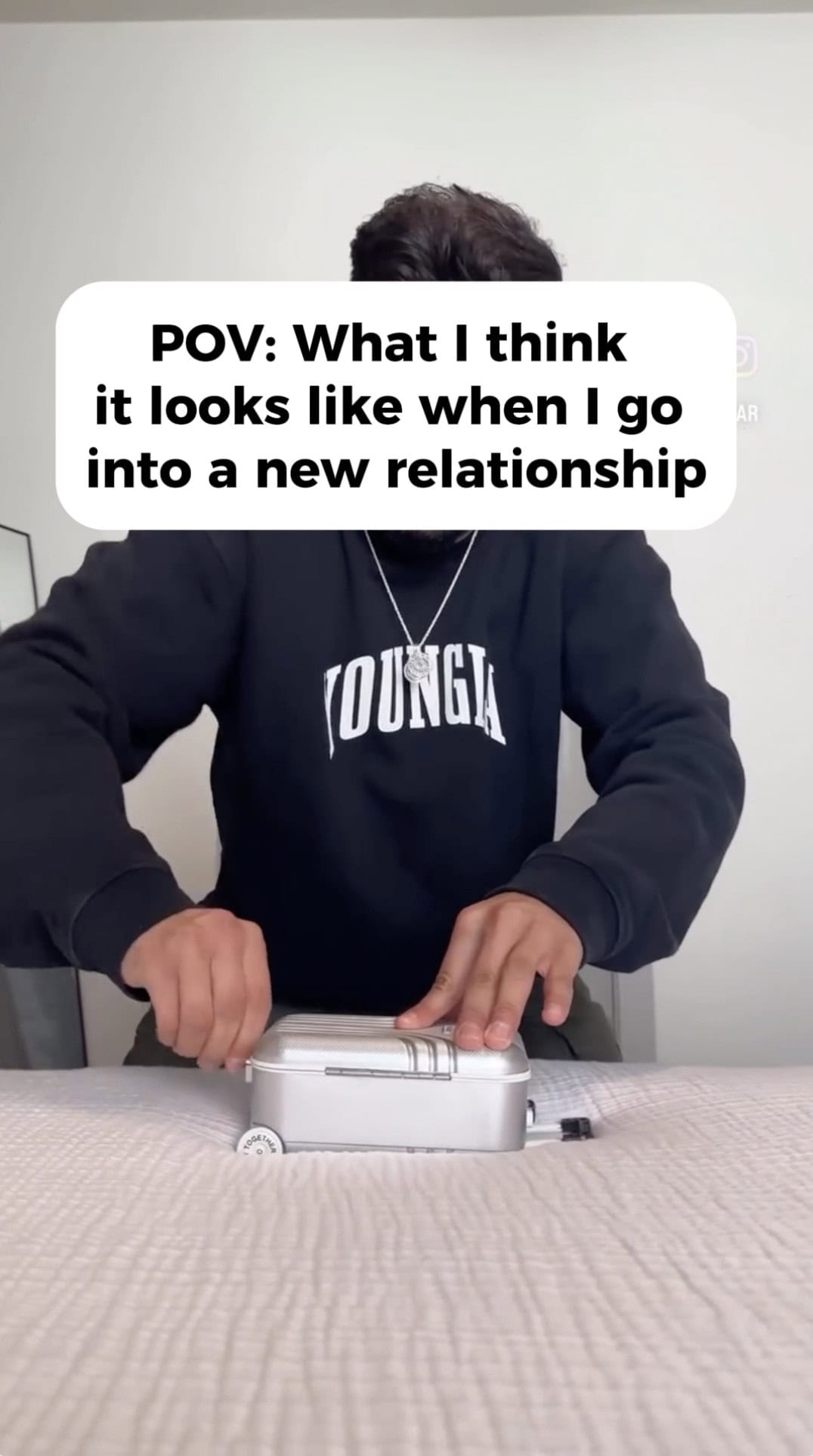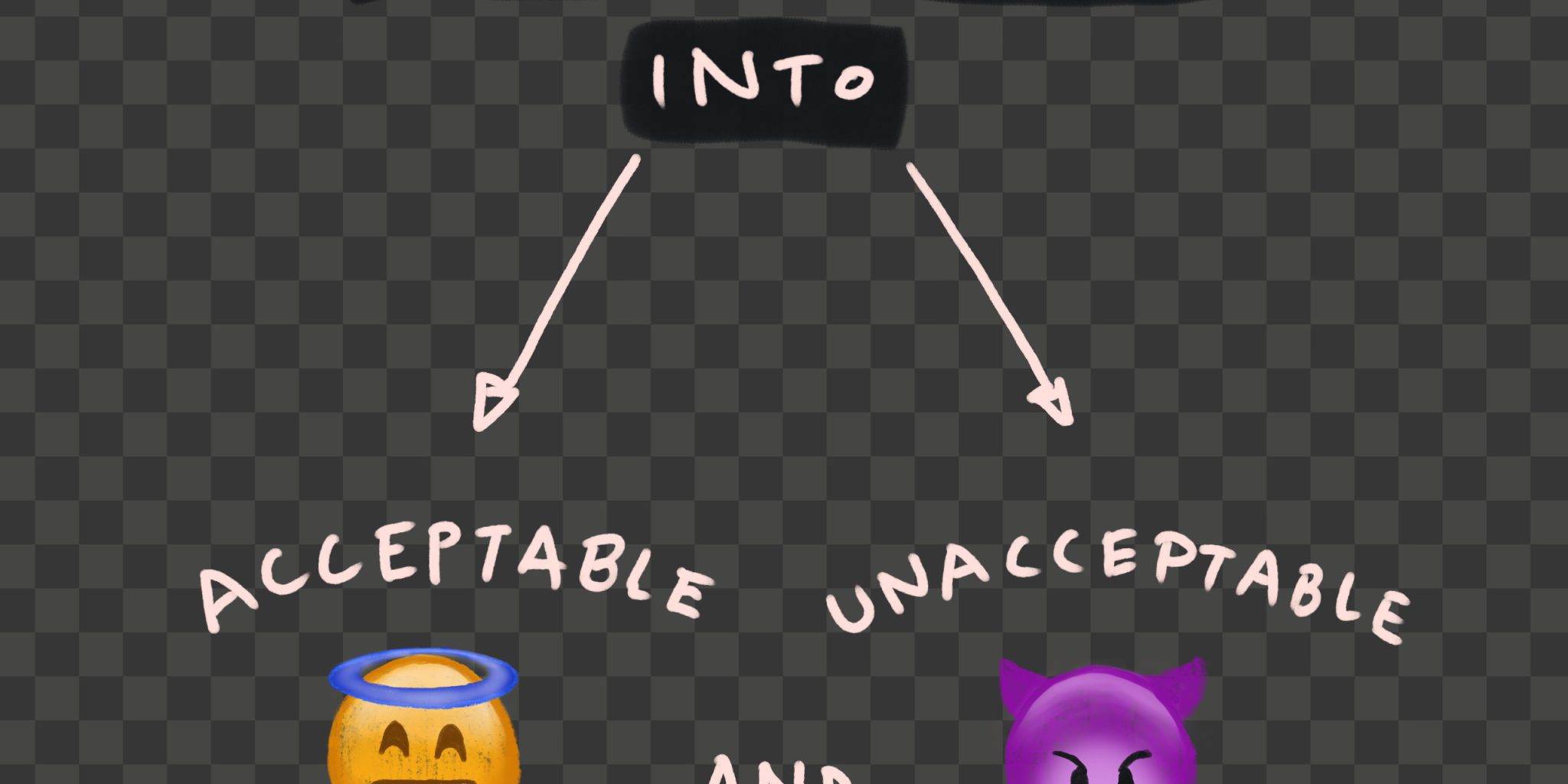Unpacking Emotional Baggage
Relationships are mirrors that reflect what’s unresolved within us. If you’re brave enough to look in that mirror and own what you see, your relationship can become a powerful vehicle for healing and growth.
The Invisible Load We Carry into Relationships
When people fall in love, they often think they’ve left their past behind. They meet someone new, feel a sense of excitement, and believe that this time, it will be different. And for a while, it is—until the first argument. That’s when the invisible backpacks of emotional baggage start to unzip, spilling their contents into the relationship.
You may find yourself suddenly feeling triggered, defensive, or misunderstood. You think, “If only they hadn’t said that,” or “If they were more considerate, we wouldn’t be arguing right now.” It’s easy to blame the other person and see their faults, without realizing that both of you entered the relationship carrying an emotional history that’s shaping your present.
What is Emotional Baggage?
Emotional baggage is the unresolved hurt, fears, and expectations we carry from past experiences—especially those from our childhood and family of origin. It’s like an unseen weight, shaping how we see ourselves and others. We carry this baggage into every new relationship, often without even knowing it. And while everyone has some, the real problem arises when we’re unaware of it or refuse to acknowledge its impact.
Imagine you’ve got a suitcase full of unhealed wounds from feeling abandoned as a child. When your partner, let’s say, needs some alone time, you might react as if they’re leaving you forever. Suddenly, your reaction seems disproportionate, even irrational. But that’s because it’s not just about now—it’s about then. The current situation triggers an old wound, causing you to feel and act from that past pain, rather than responding to what’s actually happening.

When both partners take responsibility for their baggage the relationship stops being a battlefield of projections and becomes a space for healing.
The Key-Lock System: How Baggage Fits Together
The irony is that, while we’re busy looking for someone who’s different from those who hurt us in the past, we often find someone who is, in subtle ways, exactly the same. Why? Because our unresolved issues function like a key-lock system. What we bring in our emotional baggage has all the “right” triggers that match up with what our partner carries in theirs.
This dynamic isn’t random—it’s like an unconscious magnetism. The unresolved patterns in you meet the unresolved patterns in them, locking together in a way that almost guarantees a replay of your old wounds. If you felt unseen or unheard as a child, for example, you might unconsciously pick a partner who struggles with emotional availability. And even if you swear you’re looking for someone supportive and present, you’ll still be drawn to a situation where you end up feeling neglected. Why? Because there’s a familiar comfort in replaying what you know.
And your partner, in turn, has baggage that “fits” yours. If they grew up in a chaotic household, they might be drawn to a person who has difficulty expressing their emotions calmly, so they can reenact that same emotional turbulence. It’s not about blame—it’s about patterns, and how they subtly pull us into reenactments that feel inevitable.
Why Do We Reenact Old Patterns?
On the surface, this key-lock system seems almost cruel: why would we keep finding people who mirror our childhood pain? But this dynamic, frustrating as it is, actually serves a deeper purpose. It’s a subconscious attempt to heal. Your psyche isn’t picking partners to torment you—it’s picking them to help you work through and resolve what’s still hurting inside. The problem is, we often don’t recognize this dynamic. Instead, we fall into the same traps, feeling the same pain, and blaming the same type of person, without understanding the roots of it.
The pain that emerges isn’t a sign that you’re with the wrong partner—it’s a sign that something within you is still unresolved. It’s your psyche’s way of saying, “Hey, remember this wound? Let’s try healing it this time.” Unfortunately, if we’re not aware of this, we just react, project, and perpetuate the very cycles we’re trying to escape.
The Challenge of Owning Your Baggage
The hardest part about emotional baggage is seeing it clearly. We’re masters at projecting our issues onto others. It’s much easier to say, “They’re so insensitive,” or, “Why are they always pulling away?” than to ask ourselves, “What is this situation triggering in me?” Taking responsibility for your own baggage doesn’t mean blaming yourself for every relationship problem—it means recognizing that your reactions are shaped by more than just what’s happening now.
Owning your baggage requires humility, vulnerability, and a willingness to look at yourself honestly. It means asking: What patterns do I keep repeating? What are my triggers? What unresolved feelings am I carrying? It’s not about shaming yourself—it’s about empowering yourself to break free from unconscious patterns.
And when both partners take responsibility for their baggage, something powerful happens. The relationship stops being a battlefield of projections and becomes a space for healing. Each person’s baggage becomes a map, pointing to where they need to grow. It transforms the relationship from a source of pain to a path toward deeper self-awareness.

Ask yourself, “What is this really about? What old wound is being triggered?”
How to Recognize Emotional Baggage in Your Relationship
So, how do you know if your arguments are really about now, or if they’re fueled by past baggage? Here are some signs:
- Intense, Disproportionate Reactions: When your partner’s comment or action triggers a reaction in you that seems way out of proportion to what happened, it’s a sign that something deeper is at play.
- Repeated Conflicts: If you keep having the same arguments, no matter how much you try to fix them, it’s likely that old wounds are being activated.
- Feeling “Stuck” or Powerless: Do you feel like you’re stuck in a loop, reacting the same way over and over again? This often means you’re caught in a pattern that’s bigger than the present moment.
- Blaming the Other Person for All the Problems: While your partner’s behavior might indeed be problematic, if your focus is entirely on what they are doing wrong, it’s a sign that you’re overlooking your own contributions to the cycle.
- Strong Aversion or Emotional Distance: Sometimes, instead of reacting intensely, you might find yourself pulling away or shutting down whenever a certain issue arises. This is also a sign of emotional baggage, indicating a defense mechanism that protected you in the past.
Breaking Free: Turning Your Baggage into Healing
If emotional baggage keeps replaying our old wounds, what’s the way out? The answer lies in consciously working with what’s being triggered, rather than fighting it or blaming your partner. Here’s how:
- Self-Awareness: Start by recognizing your own patterns. Journaling, therapy, or simply reflecting on how your childhood experiences might be influencing your reactions can help.
- Communicate Vulnerably: Instead of accusing your partner, express what you’re feeling underneath. Say, “When you walked away during our argument, I felt really scared and abandoned, like I did as a kid.” This takes the blame off them and helps you own your part.
- Create a Safe Space for Each Other’s Baggage: A relationship is a two-way street. Both partners need to feel safe enough to unpack their baggage without judgment. Listen with compassion when your partner shares their past triggers and vulnerabilities.
- Commit to Healing, Not Winning: In conflicts, the goal shouldn’t be to prove your point or win the argument. It should be to understand what’s really going on for both of you, and to heal those deeper wounds.
- Seek Professional Support: Sometimes, the patterns are so deeply entrenched that you need outside help. A therapist can help you identify and work through the unresolved issues you’re bringing into your relationship.
Embracing the Relationship as a Mirror
Ultimately, relationships are mirrors that reflect what’s unresolved within us. If you’re brave enough to look in that mirror and own what you see, your relationship can become a powerful vehicle for healing and growth. It’s not easy—few things are more uncomfortable than confronting your own baggage—but it’s worth it.
So, the next time an argument flares up and you feel tempted to blame your partner, pause. Ask yourself, “What is this really about? What old wound is being triggered?” It might just be that the very thing you’re arguing about is an invitation to finally put down that old baggage and build a relationship that’s free from the weight of the past.
You may also like
Imagine if the Lively/Baldoni controversy had nothing to do with sexual assault
Imagine if it was about jealousy spiraling out of control.…
The dualistic split in childhood hurt we all had to endure
Can you identify the aspects of yourself that were accepted…
We are so much more than our bodies
Our true essence extends beyond the boundaries of our…




